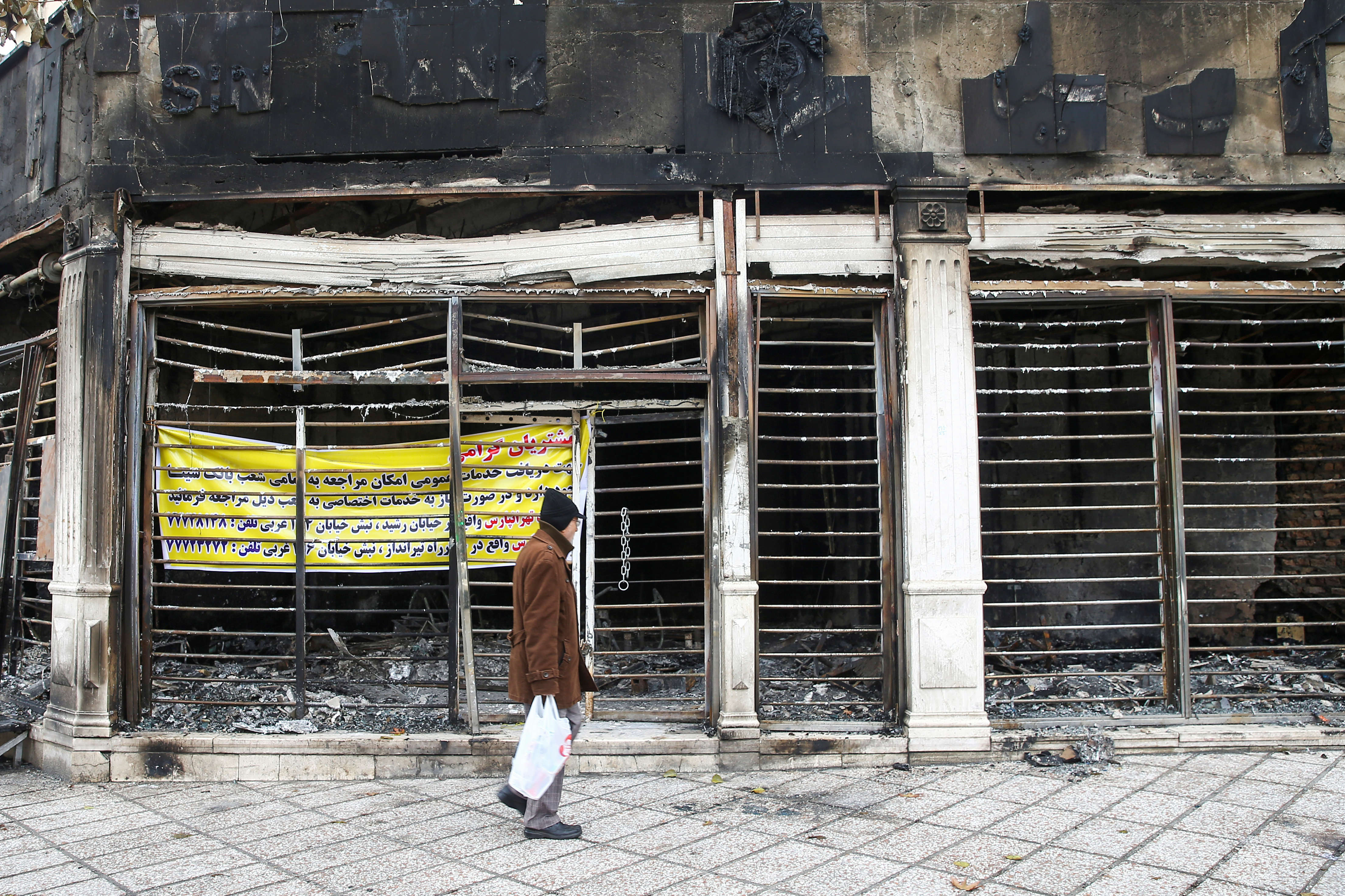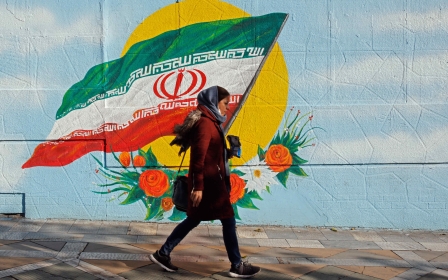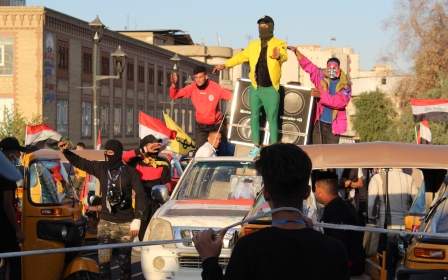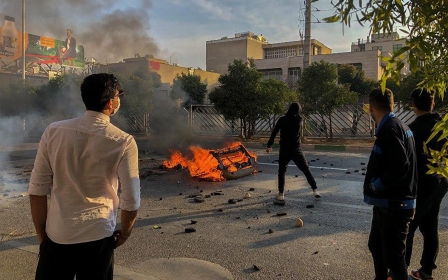Revolutionary Guards involved in crackdown in western Iran province
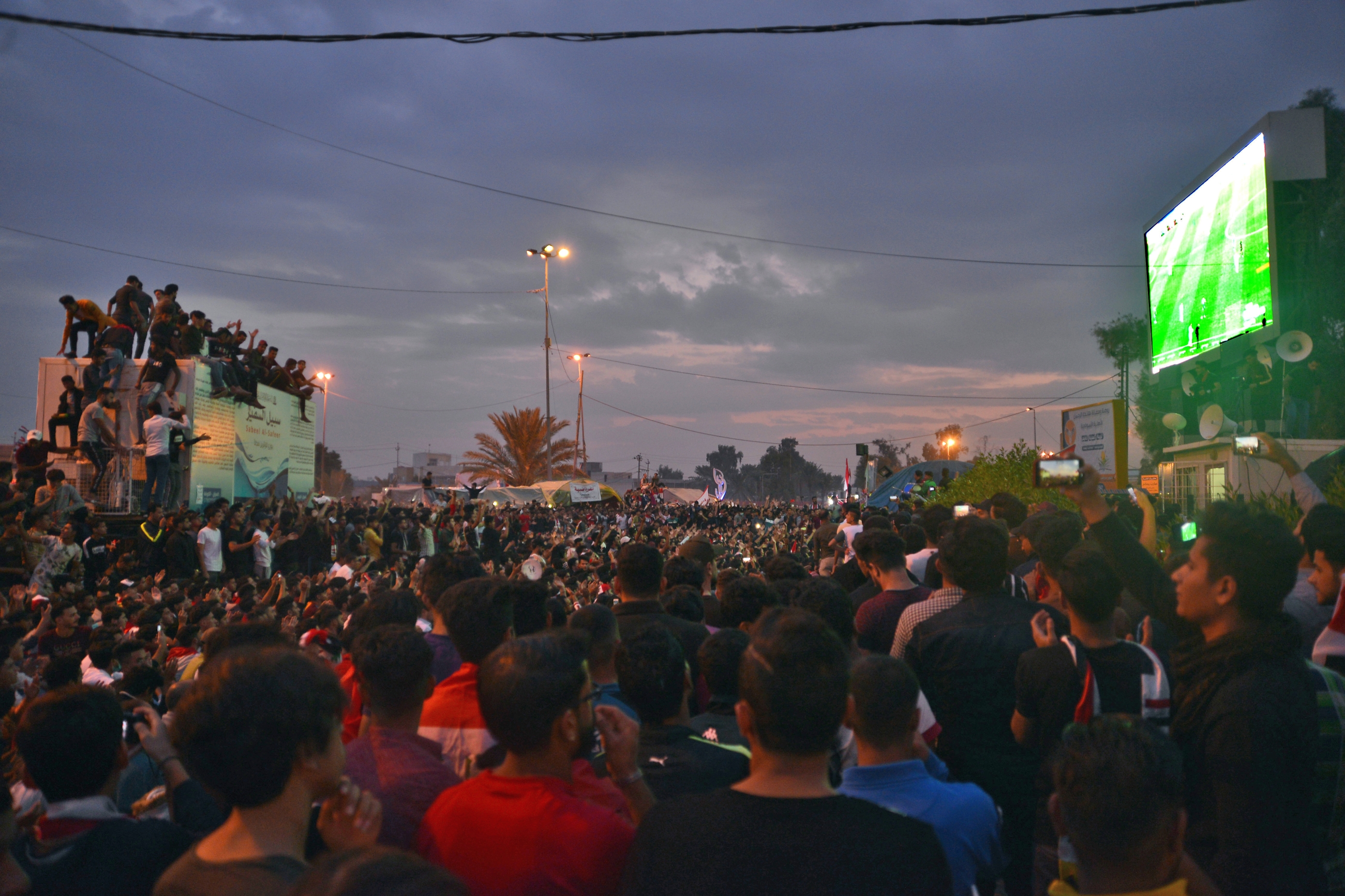
Regional countries would face consequences if it is proven they helped stoke unrest in Iran, the country's Vice President Eshaq Jahangari warned on Saturday, as other officials said the country's powerful Revolutionary Guard helped the police to quell protests in a western province.
Officials have blamed "thugs" assisted by foreign foes, such as Saudi Arabia and the United States, as well as Shah-era loyalists for stirring the protests against a fuel-price increase, which left scores dead and led to to 1,000 arrests.
"Some countries in the region should know that they will not have an easy life in the region if clues are found that show they intervened to create unrest in Iran," said Jahangiri, quoted by semi-official news agency Fars.
Regional rivals Israel and Saudi Arabia have supported the US move to reimpose crippling sanctions on Iran after the Americans withdrew from the 2015 nuclear deal signed with world powers.
The warning comes as Iranian officials revealed the role played by troops and members of the elite Revolutionary Guard in suppressing unrest in Kermanshah province last week.
New MEE newsletter: Jerusalem Dispatch
Sign up to get the latest insights and analysis on Israel-Palestine, alongside Turkey Unpacked and other MEE newsletters
At least 100 people were killed in protests against the increase in petrol prices, with 30 killed in the western province alone, according to Amnesty International.
The death toll, which has been rejected by Iranian authorities as being "speculative," is a result of what appears to be the worst violence to have hit the country since the "Green Revolution" was stamped out a decade ago.
"All the forces of the Revolutionary Guards, the [paramilitary] Basij, the Intelligence Ministry, police, and the army took part actively in controlling the situation," Parviz Tavassolizadeh, the head of the judiciary in Kermanshah, was quoted as saying by the semi-official Fars news agency.
"Tavassolizadeh said the rioters were armed," Fars reported. "They confronted agents... and burned public property."
Amnesty International this week accused Iranian authorities of using "excessive and lethal force" against "largely peaceful protests" that erupted last Friday after government slashed oil subsidies, causing petrol prices to rise by more than 50 percent.
"The authorities must end this brutal and deadly crackdown immediately and show respect for human life," Philip Luther, research and advocacy director for the Middle East and North Africa at Amnesty International, said in a statement on Tuesday.
Luther added that the security forces' handling of the demonstrations raises "fears that the intentional lethal use of firearms to crush protests has become a matter of state policy".
PresidentHassan Rouhani announced on Wednesday that an "enemy conspiracy” had been defeated, two day after Iran's Islamic Revolutionary Guard Corps promised to take "decisive and revolutionary action" to quell the protests.
Iran on Thursday began restoring internet access in the capital Tehran and a number of provinces, after a days-long nationwide shutdown meant to help stifle unrest.
Bahman Reyhani, the Revolutionary Guards commander in Kermanshah, said "the rioters belonged to anti-revolutionary [exiled opposition] groups and America's intelligence services," the semi-official Tasnim news agency reported.
While he did not name the groups, armed Iranian Kurdish militants are known to operate near the province's border with Iraq.
Guards spokesman Brigadier General Ramezan Sharif said the United States, Saudi Arabia and Israel "and their intelligence services helped stoke these events to cause insecurity in the country", Tasnim reported.
Middle East Eye delivers independent and unrivalled coverage and analysis of the Middle East, North Africa and beyond. To learn more about republishing this content and the associated fees, please fill out this form. More about MEE can be found here.


